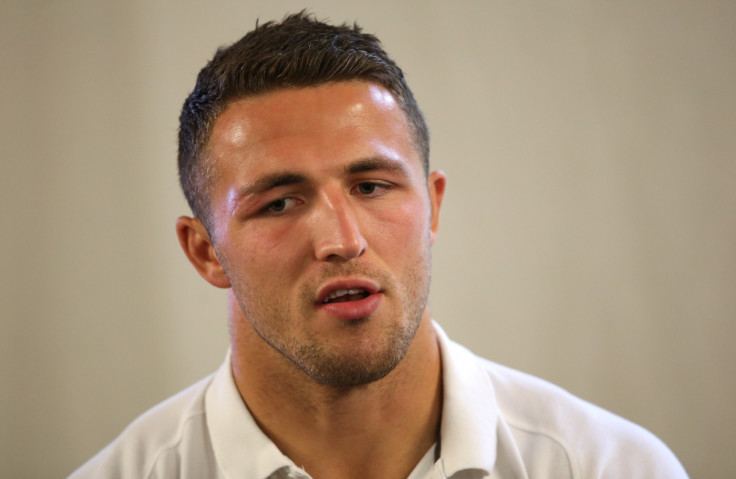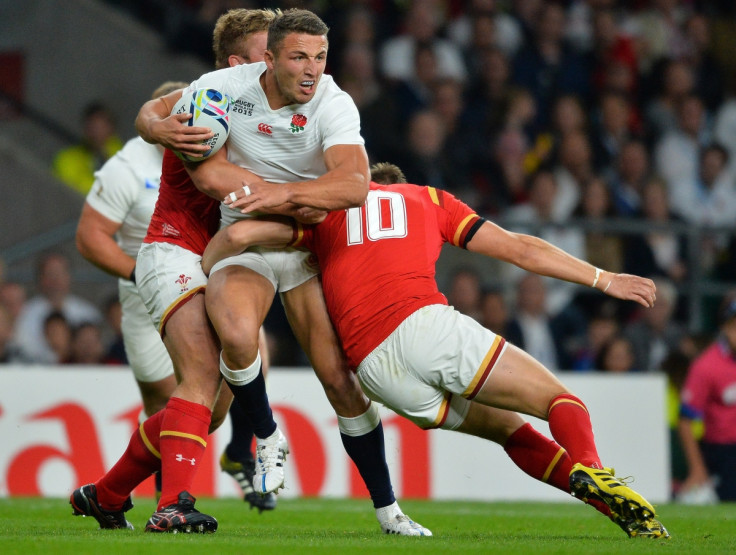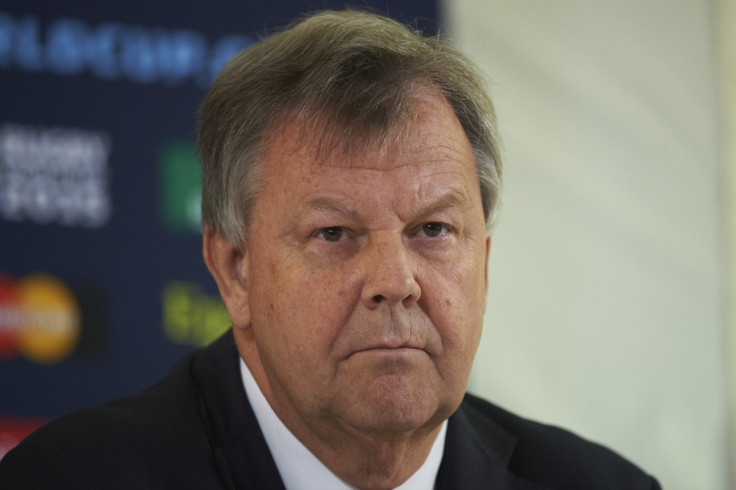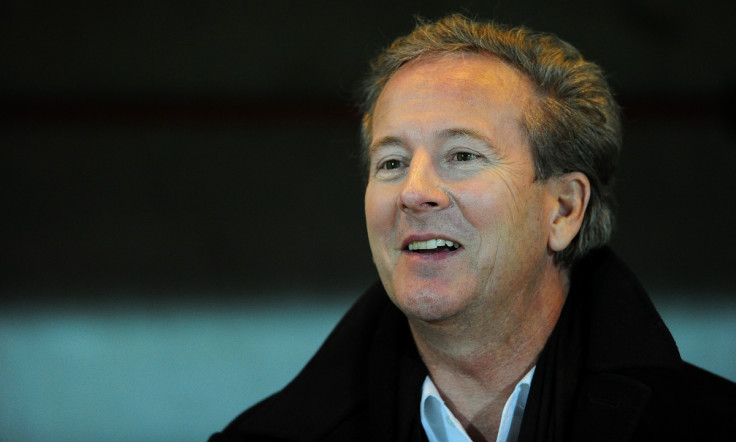Sam Burgess: No winners emerge from cross-code sham as Stuart Lancaster and RFU face questions

Such are the strides that English rugby has seemingly taken since the unmitigated failure of the 2011 World Cup where an ill-disciplined and unmotivated squad embarrassed a nation with their antics in New Zealand, even the most sceptical commentator could have not foreseen a repeat of such a sorry affair four years later on home turf.
The identities of the main protagonists from the class of 2015 may have changed and the key themes might be different but the conclusion is the same. England and the Rugby Football Union have become a laughing stock in the eyes of the global game and now they have a saga to rank alongside their boardroom cowardice, poor performances and pathetic selection policy.
After becoming the first host nation to ever exit the competition at the group stage following defeats to nemesis' Wales and Australia, the cherry on top has been provided by Sam Burgess's return to the South Sydney Rabbitohs 12 months on from his conversion to rugby union.
Seventeen club appearances and five international outings later, an experiment that promised much has ended with more questions than answers, while the reputations of many are lying in ruin. The aftermath from England's premature exit from the World Cup was expected to revolve around an internal, cloistered review, with Stuart Lancaster's head very firmly on the block. Instead, the focus is on the practices carried out by the governors of the game where there are plenty of skeletons in the closet.

Burgess has absconded to Australia with little scrutiny and yet his failure is perhaps the most glaring. The motivation regarding the timing of the 26-year-old's move to rugby union doesn't take a rugby expert to work out. After fluttering his eyelashes towards the RFU, Burgess completed his move to Bath in February 2014, prior to moving to the Aviva Premiership in October following the National Rugby League final, which saw him produce a man-of-the match display where he played on for 79 minutes with a broken cheekbone.
Such heroics meant he arrived at the Rec amid much fanfare and before he had barely hit a ruck or tackle his name was being touted with England, with above else his big-game persona seen as a potentially priceless asset.
The RFU was so keen to have Burgess playing top-flight union, it was even willing to pay part of his salary, before Premiership rivals vetoed the move. Bath accommodated the rugby league forward but cracks in the arrangement emerged almost immediately as debate began over his position, exposing the lack of thought that had gone into his recruitment.
Burgess began at flanker for Bath but England wanted him to fill the centre of a midfield that lacked presence without the influential Manu Tuilagi, who would go on to miss the World Cup though a combination of injury and an assault charge.

Just a handful of appearances later where Burgess neither flourished nor failed followed before England came calling, as Lancaster included the convert in his training squad four months out from the World Cup. It would provide him with a further opportunity to hone his skills during the off-season among the elite of the national game before his first full season.
But as names continued to be scrubbed out, Burgess remained until in August he was selected in the full 31-man squad. Established names including Northampton's Luther Burrell and fellow-rugby league convert and Bath teammate Kyle Eastmond were overlooked but it was Burgess's big-game temperament that attracted Lancaster.
The transition from NRL champion to World Cup star was completed when Burgess was selected to start for England in the critical pool stage match against Wales, up against Jamie Roberts – a duel that looks increasingly likely to have been behind Lancaster's initial thinking. Burgess was still a work in progress and so it transpired as though he was substituted midway through the second half, England were defeated by Warren Gatland's team, which coupled with the defeat to Australia a week later saw disaster strike.
Burgess's parachuting into the England fold had been exposed and he was unfairly cast as the villain of the piece, despite his reputation as a sporting goliath. Nevertheless, he had the grounding of a player capable of forming part of the England midfield in 2019, where the prospects of the team are likely to be enhanced.

But amid the speculation regarding the future of Lancaster, his misuse at international level and perhaps the media reception to his performances led to the conclusion that the remainder of his peak years would be better served back in rugby league.
Whatever the motivation, it is not the behaviour of a sporting superman who prides himself on confronting the most daunting of challenges. Such a spineless act sees the World Cup now look like an autumnal fling to Burgess, who had two years remaining on his Bath contract. Like a spoilt brat, he has picked up his (oval) ball and gone home.
Though Lancaster has consistently maintained initial negotiations with Burgess did not include any guarantees over his role during the World Cup, the unsubstantiated pace of his promotion coupled with the speed of his exit suggests an arrangement could have been made.
For Lancaster to contemplate or even agree to such, a deal the RFU would have also sanctioned, and then select Burgess after wafer-thin evidence of his abilities says much about his credentials to lead England going forward and the rhetoric over building a dynasty in the years leading up to the tournament on home turf.

Bath's reception to Burgess's return to Sydney has been curious. It took the club 24 hours to acknowledge reports of his departure; a belated response bathed in embarrassment and a statement led by head coach Mike Ford that expressed regret. Why owner Bruce Craig took it upon himself to claim Burgess was staying for the remainder of his contract just days before needs explaining, particularly given the cogs were very much in motion over his departure.
The Rugby World Cup was expected to create everlasting memories, discover names for the future and unite a nation. England exited the pool, their most controversial selection in Burgess has abandoned the sport, Lancaster's future is uncertain and the RFU and English rugby are unified in their universal inadequacy. Sounds like job done.
© Copyright IBTimes 2025. All rights reserved.






















